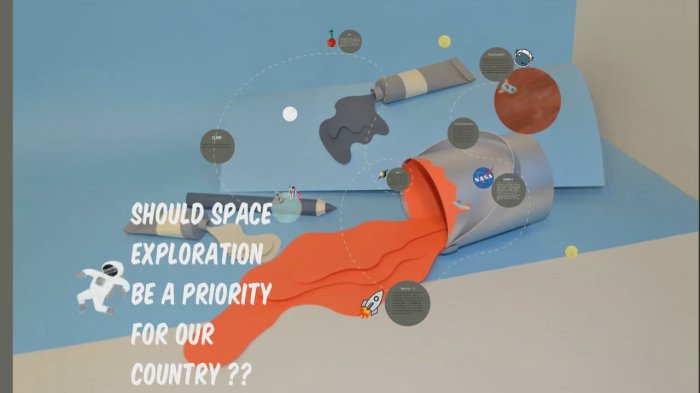Danger this mission to Mars could bore you! This seemingly paradoxical statement highlights a critical but often overlooked aspect of long-duration space missions: the potential for boredom and its detrimental effects on crew morale, productivity, and mission success.
Extended periods of isolation, monotonous routines, and limited stimuli can create a breeding ground for boredom, posing significant challenges to the psychological well-being and cognitive performance of astronauts. This article delves into the potential causes, psychological factors, and mitigating strategies associated with boredom on missions to Mars, providing valuable insights for mission planners and researchers.
Exploring Potential Causes of Boredom
Prolonged space missions to Mars pose a significant challenge due to the extended duration and monotonous environment, which can lead to boredom among crew members. Understanding the potential causes of boredom is crucial for developing effective countermeasures.
Extended Duration of the Mission
The extended duration of a Mars mission, typically lasting several months or even years, can contribute to boredom. The repetitive nature of daily routines, coupled with the lack of immediate environmental changes, can lead to a sense of monotony and disinterest.
Lack of Diverse Stimuli and Activities
During the journey to Mars, astronauts are confined to a relatively small spacecraft with limited opportunities for physical activity, social interaction, and sensory stimulation. This lack of diverse stimuli and engaging activities can exacerbate boredom and reduce motivation.
Absence of Immediate Rewards or Tangible Progress
Unlike terrestrial missions, where crew members can observe tangible progress or receive immediate feedback on their actions, space missions to Mars often involve long periods without visible progress or rewards. This absence of immediate gratification can further contribute to boredom and frustration.
Identifying Psychological Factors Contributing to Boredom

Beyond the environmental factors, certain psychological factors can also play a role in boredom during space missions.
Sensory Deprivation
The isolated and confined environment of a spacecraft can lead to sensory deprivation, reducing the level of stimulation and increasing the risk of boredom. Limited access to natural light, fresh air, and diverse sounds can contribute to a sense of monotony and disengagement.
Isolation and Lack of Social Interaction
Prolonged isolation and limited social interaction can significantly impact mental well-being and increase susceptibility to boredom. Astronauts on Mars missions are separated from their families, friends, and the familiar social environment, which can lead to feelings of loneliness and a loss of purpose.
Personality Traits and Individual Coping Mechanisms, Danger this mission to mars could bore you
Individual personality traits and coping mechanisms can also influence susceptibility to boredom. Individuals with a high need for stimulation, novelty, and variety may be more prone to boredom in the confined and monotonous environment of a spacecraft. Conversely, those with strong coping mechanisms and the ability to find meaning in routine tasks may be less likely to experience boredom.
Exploring Potential Mitigating Strategies
To address the challenges of boredom during Mars missions, it is essential to develop and implement effective mitigating strategies.
Creating a Stimulating and Engaging Environment
Creating a stimulating and engaging environment within the spacecraft can help reduce boredom and maintain crew morale. This can involve incorporating virtual reality experiences, providing access to a wide range of entertainment options, and designing the spacecraft’s interior to maximize natural light and minimize monotony.
Regular Communication with Earth and Shared Experiences
Regular communication with Earth and the sharing of experiences can help maintain a sense of connection and reduce the feeling of isolation. Video calls, emails, and social media platforms can facilitate communication with family, friends, and the general public, providing astronauts with a sense of belonging and purpose.
Fostering a Sense of Purpose and Accomplishment
Fostering a sense of purpose and accomplishment among crew members is crucial for preventing boredom. This can be achieved by clearly defining mission goals, providing regular updates on progress, and recognizing individual contributions. Engaging astronauts in meaningful scientific experiments and educational outreach programs can further enhance their sense of purpose and motivation.
Evaluating the Effects of Boredom on Mission Outcomes

Boredom can have significant consequences for the success of Mars missions and the well-being of the crew.
Crew Morale and Productivity
Prolonged boredom can lead to a decline in crew morale and productivity. Boredom can impair motivation, reduce focus, and hinder decision-making abilities. This can compromise the efficiency and effectiveness of the mission.
Impaired Decision-Making and Reduced Vigilance
Boredom can impair decision-making and reduce vigilance, increasing the risk of errors and accidents. In the demanding and potentially hazardous environment of a Mars mission, it is essential to maintain high levels of alertness and cognitive function.
Long-Term Mission Success and Crew Well-Being
Persistent boredom can negatively impact the long-term success of the mission and the overall well-being of the crew. Chronic boredom can lead to psychological distress, decreased job satisfaction, and an increased risk of mental health issues, ultimately affecting the safety and efficiency of the mission.
Designing Countermeasures to Prevent Boredom: Danger This Mission To Mars Could Bore You

To prevent boredom and its negative consequences, it is essential to design and implement comprehensive countermeasures.
Cognitive Stimulation Activities and Experiments
Incorporating a wide range of cognitive stimulation activities and experiments into the mission plan can help maintain mental engagement and prevent boredom. This can include scientific experiments, problem-solving exercises, educational programs, and creative challenges.
Optimized Schedule and Recreation
Designing a schedule that optimizes the balance between work, rest, and recreational activities is crucial. Allocating specific time slots for physical exercise, entertainment, and social interaction can help prevent boredom and maintain crew well-being.
Boredom Management Techniques
Training crew members in boredom management techniques can empower them to cope with and overcome feelings of boredom. Techniques such as mindfulness, goal-setting, and cognitive reframing can help astronauts maintain a positive mindset and find meaning in their experiences.
FAQ Summary
What are the primary causes of boredom on missions to Mars?
Extended mission duration, lack of diverse stimuli, and absence of immediate rewards or tangible progress are key contributors to boredom.
How does boredom affect astronauts psychologically?
Boredom can lead to sensory deprivation, isolation, and impaired mental well-being, increasing susceptibility to negative mood states and cognitive decline.
What strategies can be implemented to mitigate boredom on missions to Mars?
Creating a stimulating environment, fostering regular communication with Earth, and promoting a sense of purpose and accomplishment can effectively combat boredom.